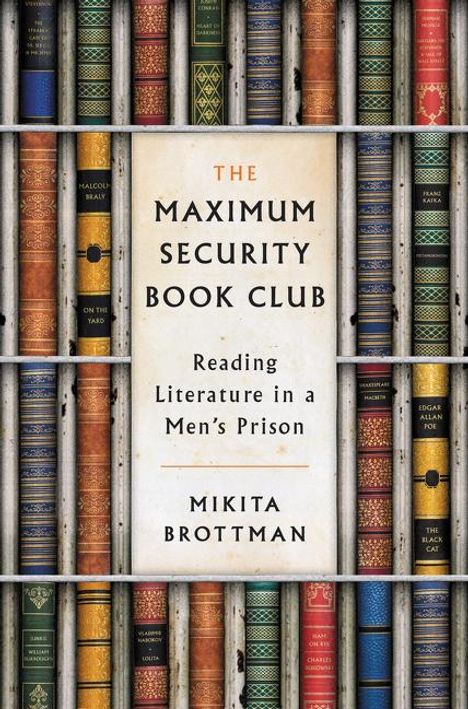Mikita Brottman: The Maximum Security Book Club
The Maximum Security Book Club
Buch
- Reading Literature in a Men's Prison
Lieferzeit beträgt mind. 4 Wochen
(soweit verfügbar beim Lieferanten)
(soweit verfügbar beim Lieferanten)
EUR 28,41*
Verlängerter Rückgabezeitraum bis 31. Januar 2025
Alle zur Rückgabe berechtigten Produkte, die zwischen dem 1. bis 31. Dezember 2024 gekauft wurden, können bis zum 31. Januar 2025 zurückgegeben werden.
- HarperCollins, 06/2016
- Einband: Gebunden
- Sprache: Englisch
- ISBN-13: 9780062384331
- Bestellnummer: 8384588
- Umfang: 272 Seiten
- Gewicht: 408 g
- Maße: 234 x 160 mm
- Stärke: 23 mm
- Erscheinungstermin: 7.6.2016
Achtung: Artikel ist nicht in deutscher Sprache!
Weitere Ausgaben von The Maximum Security Book Club
Klappentext
On sabbatical from teaching literature to undergraduates, and wanting to educate a different kind of student, Mikita Brottman starts a book club with a group of convicts from the Jessup Correctional Institution in Maryland. She assigns them ten dark, challenging classics—including Conrad’s Heart of Darkness, Shakespeare’s Macbeth, Stevenson’s Strange Case of Dr. Jekyll and Mr. Hyde, Poe’s “The Black Cat,” and Nabokov’s Lolita—books that don’t flinch from evoking the isolation of the human struggle, the pain of conflict, and the cost of transgression. Although Brottman is already familiar with these works, the convicts explore them in completely new ways. Their discussions may be about “only” literature, but for the prisoners, everything is at stake.Gradually, the convicts open up about their lives and families, their disastrous choices, their guilt and loss. Brottman also discovers that life in a prison, while monotonous, is never without incident. The book club members struggle with their assigned readings in solitary confinement, on lockdown, in between factory shifts, in the hospital, and in the middle of the chaos of blasting televisions, incessant chatter, and the constant banging of metal doors.
Though The Maximum Security Book Club never loses sight of the moral issues raised by the selected readings, it refuses to back away from the unexpected insights offered by the company of these complex, difficult men. Brottman delivers a compelling, thoughtful analysis of literature—and prison life—unlike anything you have ever read before.



